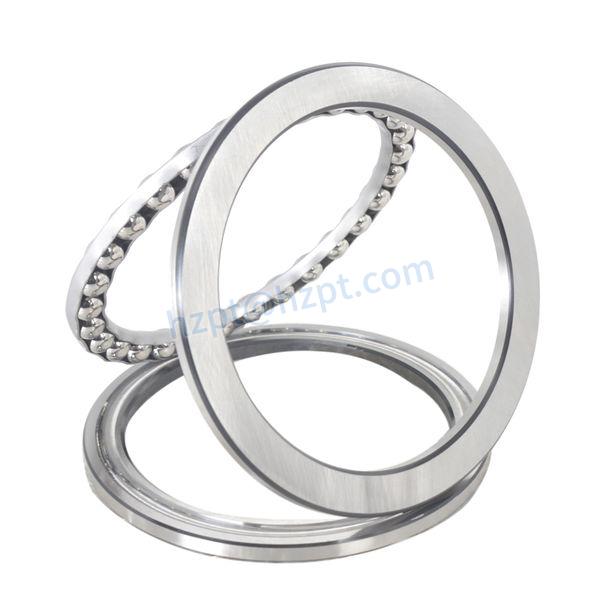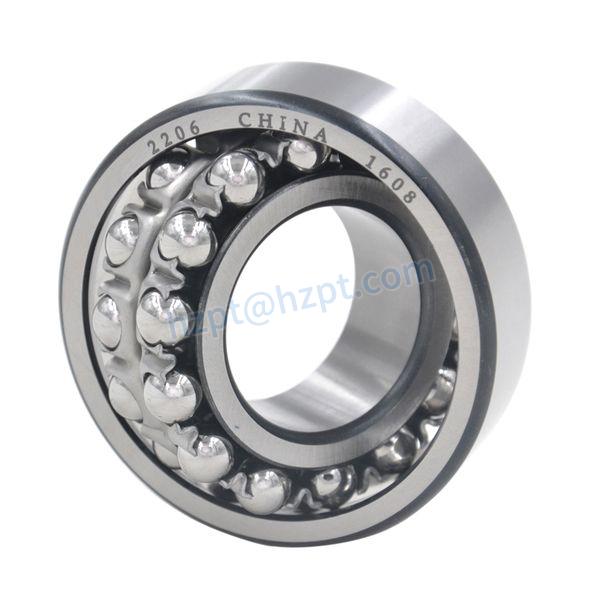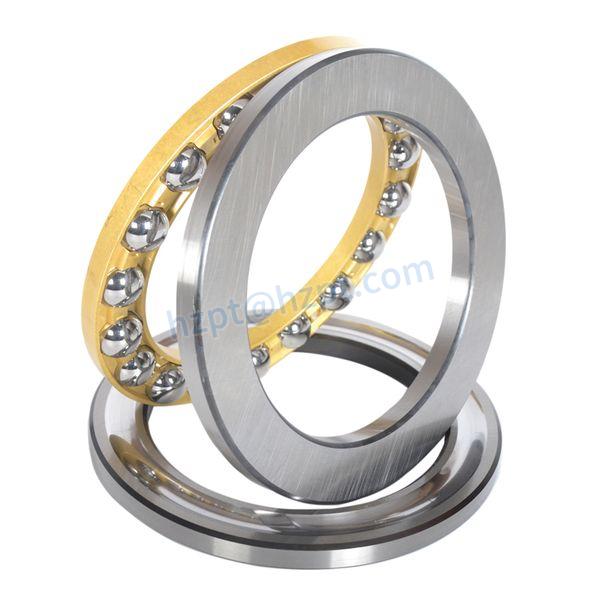Product Description
Ball bearing/6903ZZCM/Nskskftimken Deep Groove Ball Bearing
1. Model: NSK 6903
2. Type: Deep Groove Ball Bearing
– Deep groove ball bearings are 1 of the most common types of bearings, known for their high load-carrying capacity and smooth operation.
– They are suitable for various applications, including power tools, automotive components, machinery, etc.
3. Dimensional Parameters:
– Inner Diameter (d): 17 millimeters
– Outer Diameter (D): 30 millimeters
– Width (B): 7 millimeters
4. Material:
– The inner and outer rings, as well as the rolling elements, are typically made of high-quality bearing steel to provide sufficient strength and wear resistance.
| Model | Dust cover type | Sealing ring type | Bore Diameter (mm) | Outer Diameter(mm) | Width(mm) |
| 6800 | ZZ | VV/DD/DDU | 10 | 19 | 5 |
| 6900 | ZZ | VV/DD/DDU | 10 | 22 | 6 |
| 6000 | ZZ | VV/DD/DDU | 10 | 26 | 8 |
| 6200 | ZZ | VV/DD/DDU | 10 | 30 | 9 |
| 6300 | ZZ | VV/DD/DDU | 10 | 35 | 11 |
| 6801 | ZZ | VV/DD/DDU | 12 | 21 | 5 |
| 6901 | ZZ | VV/DD/DDU | 12 | 24 | 6 |
| 16001 | – | – | 12 | 28 | 7 |
| 6001 | ZZ | VV/DD/DDU | 12 | 28 | 8 |
| 6201 | ZZ | VV/DD/DDU | 12 | 32 | 10 |
| 6301 | ZZ | VV/DD/DDU | 12 | 37 | 12 |
| 6802 | ZZ | VV/DD/DDU | 15 | 24 | 5 |
| 6902 | ZZ | VV/DD/DDU | 15 | 28 | 7 |
| 16002 | – | – | 15 | 32 | 8 |
| 6002 | ZZ | VV/DD/DDU | 15 | 32 | 9 |
| 6202 | ZZ | VV/DD/DDU | 15 | 35 | 11 |
| 6302 | ZZ | VV/DD/DDU | 15 | 42 | 13 |
| 6803 | ZZ | VV/DD/DDU | 17 | 26 | 5 |
| 6903 | ZZ | VV/DD/DDU | 17 | 30 | 7 |
| 16003 | – | – | 17 | 35 | 8 |
| 6003 | ZZ | VV/DD/DDU | 17 | 35 | 10 |
| 6203 | ZZ | VV/DD/DDU | 17 | 40 | 12 |
| 6303 | ZZ | VV/DD/DDU | 17 | 47 | 14 |
| 6804 | ZZ | VV/DD/DDU | 20 | 32 | 7 |
| 6904 | ZZ | VV/DD/DDU | 20 | 37 | 9 |
| 16004 | – | – | 20 | 42 | 8 |
| 6004 | ZZ | VV/DD/DDU | 20 | 42 | 12 |
| 6204 | ZZ | VV/DD/DDU | 20 | 47 | 14 |
| 6304 | ZZ | VV/DD/DDU | 20 | 52 | 15 |
| 6805 | ZZ | VV/DD/DDU | 25 | 37 | 7 |
| 6905 | ZZ | VV/DD/DDU | 25 | 42 | 9 |
| 16005 | – | – | 25 | 47 | 8 |
| 6005 | ZZ | VV/DD/DDU | 25 | 47 | 12 |
| 6205 | ZZ | VV/DD/DDU | 25 | 52 | 15 |
| 6305 | ZZ | VV/DD/DDU | 25 | 62 | 17 |
| 6806 | ZZ | VV/DD/DDU | 30 | 42 | 7 |
| 6906 | ZZ | VV/DD/DDU | 30 | 47 | 9 |
| 16006 | – | – | 30 | 55 | 9 |
| 6006 | ZZ | VV/DD/DDU | 30 | 55 | 13 |
| 6206 | ZZ | VV/DD/DDU | 30 | 62 | 16 |
| 6306 | ZZ | VV/DD/DDU | 30 | 72 | 19 |
| 6807 | ZZ | VV/DD/DDU | 35 | 47 | 7 |
| 6907 | ZZ | VV/DD/DDU | 35 | 55 | 10 |
| 16007 | – | – | 35 | 62 | 9 |
| 6007 | ZZ | VV/DD/DDU | 35 | 62 | 14 |
| 6207 | ZZ | VV/DD/DDU | 35 | 72 | 17 |
| 6307 | ZZ | VV/DD/DDU | 35 | 80 | 21 |
| 6808 | ZZ | VV/DD/DDU | 40 | 52 | 7 |
| 6908 | ZZ | VV/DD/DDU | 40 | 62 | 12 |
| 16008 | – | – | 40 | 68 | 9 |
| 6008 | ZZ | VV/DD/DDU | 40 | 68 | 15 |
| 6208 | ZZ | VV/DD/DDU | 40 | 80 | 18 |
| 6308 | ZZ | VV/DD/DDU | 40 | 90 | 23 |
| 6809 | ZZ | VV/DD/DDU | 45 | 58 | 7 |
| 6909 | ZZ | VV/DD/DDU | 45 | 68 | 12 |
| 16009 | – | – | 45 | 75 | 10 |
| 6009 | ZZ | VV/DD/DDU | 45 | 75 | 16 |
| 6209 | ZZ | VV/DD/DDU | 45 | 85 | 19 |
| 6309 | ZZ | VV/DD/DDU | 45 | 100 | 25 |
Applications of Deep Groove Ball Bearings:
Deep groove ball bearings are a common type of bearing with a wide range of applications. Here are some common applications of deep groove ball bearings:
1. Electric Motors and Engines: Deep groove ball bearings are commonly used in electric motors and engines to support the rotating motion of the rotor and withstand axial and radial loads.
2. Automotive Industry: Deep groove ball bearings are widely used in the automotive industry, including engine, transmission systems, suspension systems, wheels, and subframes.
3. Machinery Equipment: Deep groove ball bearings are suitable for various machinery equipment, such as industrial machinery, agricultural machinery, construction equipment, textile machinery, etc. They are used for power transmission, supporting rotating components, and reducing friction.
4. Pumps and Fans: Deep groove ball bearings are used in rotating equipment such as pumps and fans to support the rotation of the impeller and provide stable operation.
5. Household Appliances: Deep groove ball bearings are commonly found in household appliances such as washing machines, air conditioners, electric fans, etc., to support the rotation of motor rotors.
6. Industrial Transmissions: Deep groove ball bearings are used in various industrial transmission systems, such as gear transmissions, chain drives, etc., to support rotational motion and transmit torque.
7. Bicycles and Motorcycles: Deep groove ball bearings are widely used in bicycle and motorcycle wheels, steering systems, and engines.
These are just some common applications of deep groove ball bearings. In reality, deep groove ball bearings are widely used in various machinery and industries. Their simple structure and efficient performance make them an ideal choice for many rotating devices.
Deep groove ball bearings have several advantages:
1. High load-carrying capacity: Deep groove ball bearings can withstand both radial and axial loads, making them suitable for various load conditions.
2. Low friction and high efficiency: Deep groove ball bearings have a ball-and-groove structure, resulting in low frictional losses and providing high speed and operational efficiency.
3. Axial stability: The structure of deep groove ball bearings offers good axial stability, allowing them to withstand axial forces and prevent axial displacement.
4. Simplified installation and maintenance: Deep groove ball bearings have a simple structure, making them easy to install and dismantle, saving time and costs. Additionally, they often do not require additional lubrication or sealing devices.
5. Diverse applications: Deep groove ball bearings are widely used in various industries and fields, including machinery, automotive, power tools, and household appliances, meeting different application requirements.
6. High reliability and durability: Deep groove ball bearings are made of high-quality materials and undergo precision manufacturing, ensuring excellent reliability and durability to maintain stable performance during long-term operation.
In summary, deep groove ball bearings offer advantages such as high load-carrying capacity, low friction and high efficiency, axial stability, simplified installation and maintenance, diverse applications, and high reliability and durability. These characteristics make them a crucial type of bearing widely used in various industrial
FAQ
1.What is the minimum order quantity for this product?
Can be negotiated, we will try our best to meet customer needs.Our company is mainly based on wholesale sales, most customers’orders are more than Over 500 sets.
2.What is your latest delivery time?
Most orders will be shipped within 3-5 days of payment being received.
3.Does your company have quality assurance?
Yes, for 1 years.
4.Are you a factory or a trading company?
We have our own cooperative factory, and our business type is a combination of manufacturing and trading.
5.What is the competitiveness of your company’s products compared to other companies?
High precision, high speed, low noise.
6.What are the advantages of your company’s services compared to other companies?
Answer questions online 24 hours a day, reply in a timely manner, 100% after-sales service.
7.Which payment method does your company support?
Do our best to meet customer needs, Can be negotiated.
8.How to contact us quickly?
Please send us an inquiry or message and leave your other contact information, we will contact you as soon as possible and provide the detailed information you need.
/* January 22, 2571 19:08:37 */!function(){function s(e,r){var a,o={};try{e&&e.split(“,”).forEach(function(e,t){e&&(a=e.match(/(.*?):(.*)$/))&&1
| Separated: | Unseparated |
|---|---|
| Rows Number: | Single |
| Load Direction: | Radial Bearing |
| Customization: |
Available
| Customized Request |
|---|
.shipping-cost-tm .tm-status-off{background: none;padding:0;color: #1470cc}
|
Shipping Cost:
Estimated freight per unit. |
about shipping cost and estimated delivery time. |
|---|
| Payment Method: |
|
|---|---|
|
Initial Payment Full Payment |
| Currency: | US$ |
|---|
| Return&refunds: | You can apply for a refund up to 30 days after receipt of the products. |
|---|

What are the Materials Typically Used in Manufacturing Ball Bearings and Their Advantages?
Ball bearings are manufactured using a variety of materials, each chosen for its specific properties and advantages in various applications. Here are some commonly used materials in ball bearing manufacturing and their respective benefits:
- High-Carbon Chrome Steel (AISI 52100):
This is the most common material used for ball bearing manufacturing. It offers excellent hardness, wear resistance, and fatigue strength. High-carbon chrome steel bearings are suitable for a wide range of applications, from industrial machinery to automotive components.
- Stainless Steel (AISI 440C, AISI 304, AISI 316):
Stainless steel bearings are corrosion-resistant and suitable for applications where moisture, chemicals, or exposure to harsh environments are concerns. AISI 440C offers high hardness and corrosion resistance, while AISI 304 and AISI 316 provide good corrosion resistance and are often used in food and medical industries.
- Ceramic:
Ceramic bearings use silicon nitride (Si3N4) or zirconia (ZrO2) balls. Ceramic materials offer high stiffness, low density, and excellent resistance to corrosion and heat. Ceramic bearings are commonly used in high-speed and high-temperature applications, such as in aerospace and racing industries.
- Plastic (Polyamide, PEEK):
Plastic bearings are lightweight and offer good corrosion resistance. Polyamide bearings are commonly used due to their low friction and wear properties. Polyether ether ketone (PEEK) bearings provide high-temperature resistance and are suitable for demanding environments.
- Bronze:
Bronze bearings are often used in applications where self-lubrication is required. Bronze has good thermal conductivity and wear resistance. Bearings made from bronze are commonly used in machinery requiring frequent starts and stops.
- Hybrid Bearings:
Hybrid bearings combine steel rings with ceramic balls. These bearings offer a balance between the advantages of both materials, such as improved stiffness and reduced weight. Hybrid bearings are used in applications where high speeds and low friction are essential.
- Specialty Alloys:
For specific applications, specialty alloys may be used to meet unique requirements. For example, bearings used in extreme temperatures or corrosive environments may be made from materials like titanium or hastelloy.
- Coated Bearings:
Bearings may also be coated with thin layers of materials like diamond-like carbon (DLC) or other coatings to enhance performance, reduce friction, and improve wear resistance.
The choice of material depends on factors such as application requirements, operating conditions, load, speed, and environmental factors. Selecting the right material is essential for ensuring optimal bearing performance, longevity, and reliability in diverse industries and applications.

How do Miniature Ball Bearings Differ from Standard-sized Ones, and Where are They Commonly Used?
Miniature ball bearings, as the name suggests, are smaller in size compared to standard-sized ball bearings. They have distinct characteristics and are designed to meet the unique requirements of applications that demand compactness, precision, and efficient rotation in confined spaces. Here’s how miniature ball bearings differ from standard-sized ones and where they are commonly used:
- Size:
The most noticeable difference is their size. Miniature ball bearings typically have outer diameters ranging from a few millimeters to around 30 millimeters, while standard-sized ball bearings have larger dimensions suitable for heavier loads and higher speeds.
- Load Capacity:
Due to their smaller size, miniature ball bearings have lower load-carrying capacities compared to standard-sized bearings. They are designed for light to moderate loads and are often used in applications where precision and compactness are prioritized over heavy load support.
- Precision:
Miniature ball bearings are known for their high precision and accuracy. They are manufactured to tighter tolerances, making them suitable for applications requiring precise motion control and low levels of vibration.
- Speed:
Miniature ball bearings can achieve higher speeds than standard-sized bearings due to their smaller size and lower mass. This makes them ideal for applications involving high-speed rotation.
- Friction and Efficiency:
Miniature ball bearings generally have lower friction due to their smaller contact area. This contributes to higher efficiency and reduced heat generation in applications that require smooth and efficient motion.
- Applications:
Miniature ball bearings find applications in various industries and sectors:
- Electronics and Consumer Devices:
They are used in small motors, computer disk drives, printers, and miniature fans, where space is limited but precise motion is essential.
- Medical and Dental Equipment:
Miniature bearings are used in medical devices such as surgical instruments, dental handpieces, and diagnostic equipment due to their precision and compactness.
- Robotics and Automation:
Miniature ball bearings are integral to robotic arms, miniature conveyors, and automation systems, enabling precise movement in confined spaces.
- Aerospace and Defense:
They are used in applications like UAVs (drones), aerospace actuators, and satellite components where size and weight constraints are critical.
- Optics and Instrumentation:
Miniature bearings play a role in optical instruments, cameras, and measuring devices, providing smooth rotation and accurate positioning.
Overall, miniature ball bearings are specialized components designed for applications where space, precision, and efficient rotation are paramount. Their compactness and high precision make them crucial in various industries requiring reliable motion control in limited spaces.

What are the Primary Benefits of Using Ball Bearings in Machinery and Equipment?
Ball bearings offer several primary benefits when used in machinery and equipment. Their design and functionality provide advantages that contribute to the efficient and reliable operation of various applications. Here are the key benefits:
- Reduced Friction:
One of the primary benefits of ball bearings is their ability to minimize friction between moving parts. The rolling motion of the balls reduces the contact area and sliding friction, leading to smoother operation and less energy loss due to frictional heating.
- Efficient Load Support:
Ball bearings are engineered to support both radial and axial loads, making them versatile for applications with multidirectional forces. This load-bearing capability allows machinery to handle different types of loads while maintaining performance and stability.
- Smooth Rotation:
Ball bearings enable smooth and precise rotational movement. The rolling motion of the balls provides consistent motion with minimal resistance, ensuring that machinery operates smoothly and without jerks.
- High-Speed Capability:
Due to their low friction and efficient rolling action, ball bearings are suitable for high-speed applications. They allow machinery and equipment to achieve and maintain high rotational speeds without excessive wear or heat buildup.
- Reduced Wear and Maintenance:
The reduced friction in ball bearings leads to lower wear on components. This results in longer service intervals and reduced maintenance requirements, saving both time and maintenance costs.
- Energy Efficiency:
By minimizing friction and reducing energy losses, ball bearings contribute to the overall energy efficiency of machinery. This is particularly important in applications where energy consumption is a concern.
- Versatility:
Ball bearings come in various types, sizes, and configurations, allowing them to be used in a wide range of machinery and equipment. They can be customized to suit specific application requirements.
- Reliability and Longevity:
Ball bearings are designed to withstand heavy loads and harsh operating conditions. Their durability and resistance to wear ensure reliable performance and an extended operational life.
- Quiet Operation:
Ball bearings contribute to quiet machinery operation due to the smooth rolling motion of the balls. This is particularly important in applications where noise reduction is a consideration.
In summary, the primary benefits of using ball bearings in machinery and equipment include reduced friction, efficient load support, smooth rotation, high-speed capability, reduced wear and maintenance, energy efficiency, versatility, reliability, and quiet operation. These benefits collectively enhance the performance and longevity of machinery across various industries.


editor by CX 2024-05-16